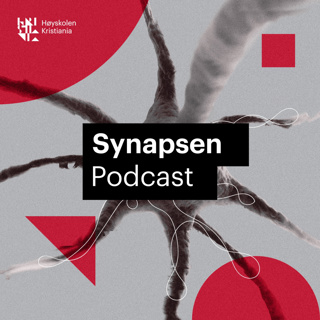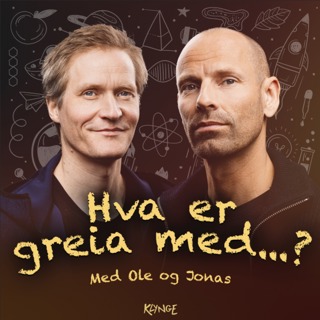
Aileen Moreton-Robinson, “The White Possessive: Property, Power, and Indigenous Sovereignty” (U of Minnesota Press, 2015)
Owning property. Being property. Becoming propertyless. These are three themes of white possession that structure Aileen Moreton-Robinson’s brilliant new inquiry into the dynamics of race and Indigeneity in “postcolonizing” societies like Australia.The White Possessive: Property, Power, and Indigenous Sovereignty (University of Minnesota Press, 2015) collects and expands over a decade of work that speaks to key dynamics both at the heart, and sometimes obscured, within critical Indigenous studies. A Goenpul scholar from Minjerribah (Stradbroke Island), Quandamooka First Nation (Moreton Bay) in Queensland, Australia, Aileen Moreton-Robinson is the author of numerous previous books and articles in the fields of law and sovereignty, whiteness, race and feminism, and is a Council Member of the Native American and Indigenous Studies Association. Learn more about your ad choices. Visit megaphone.fm/adchoices Support our show by becoming a premium member! https://newbooksnetwork.supportingcast.fm/critical-theory
22 Okt 20151h

Paul Bonin-Rodriguez, “Performing Policy” (Palgrave, 2014)
How has American cultural and artistic policy changed over the last 25 years? Performing Policy: How Contemporary Politics and Cultural Programmes Redefined US Artists for the Twenty-First Century (Palgrave, 2014) explains the process of policy-making, funding models, NGOs and specific places that have shaped the current cultural settlement in the USA. Paul Bonin-Rodriguez’s book uses examples of policy reports, theatre and cross-arts organisations, as well as drawing on debates about creative platemaking. The multi-disciplinary approach allows Performing Policy to speak directly to the history of arts funding, in the context of the U.S.’s culture wars, as well as to the contemporary question of the role and purpose of the artist in society, along with how those artists might be educated. The book will be important reading for cultural policy and arts management students, as well as those in cultural studies. Learn more about your ad choices. Visit megaphone.fm/adchoices Support our show by becoming a premium member! https://newbooksnetwork.supportingcast.fm/critical-theory
20 Okt 201559min

Kate Pahl, “Materializing Literacies in Communities: The Uses of Literacy Revisited” (Bloomsbury, 2014)
Literary practices are often associated with specific social groups in particular social settings. Kate Pahl‘s Materializing Literacies in Communities: The Uses of Literacy Revisited (Bloomsbury, 2014) challenges these assumptions by showing the varieties of literary practice in Rotherham, England. The book engages with the locally particular to draw out a variety of general findings, relevant to methodological reflection and material culture debates. The book draws on a wealth of projects from the AHRC funded Connected Communities programme, including Fishing as Wisdom, The Imagine Project, and Language as Talisman. The book represents an important intervention into how we understand community, literacy and identity. Learn more about your ad choices. Visit megaphone.fm/adchoices Support our show by becoming a premium member! https://newbooksnetwork.supportingcast.fm/critical-theory
6 Okt 201537min

Eugene Thacker, “Horror of Philosophy” (Zero Book, 2011-2015)
Eugene Thacker‘s wonderful Horror of Philosophy series includes three books – In the Dust of this Planet (Zero Books, 2011), Starry Speculative Corpse (Zero Books, 2015), and Tentacles Longer than Night (Zero Books, 2015) – that collectively explore the relationship between philosophy (especially as it overlaps with demonology, occultism, and mysticism) and horror (especially of the supernatural sort). Each book takes on a particular problematic using a particular form from the history of philosophy, from the quaestio, lectio, and disputatio of medieval scholarship, to shorter aphoristic prose, to productive “mis-readings” of works of horror as philosophical texts and vice versa. Taken together, the books thoughtfully model the possibilities born of a comparative scholarly approach that creates conversations among works that might not ordinarily be juxtaposed in the same work: like Nishitani, Kant, Yohji Yamamoto, and Fludd; or Argento, Dante, and Lautramont. Though they explore topics like darkness, pessimism, vampiric cephalopods, and “black tentacular voids,” these books vibrate with life and offer consistent and shining inspiration for the careful reader. Anyone interested in philosophy, theology, modern literature and cinema, literatures on life and death, the history of horror…or really, anyone at all who appreciates thoughtful writing in any form should grab them – grab all of them! – and sit somewhere comfy, and prepare to read, reflect, and enjoy. For Thacker’s brand-new book Cosmic Pessimism (published by Univocal with a super-groovy black-on-black cover) go here. Thacker is co-teaching a course with Simon Critchley on “Mysticism” at the New School for Social Research this fall 2015. You can check out the description here. Learn more about your ad choices. Visit megaphone.fm/adchoices Support our show by becoming a premium member! https://newbooksnetwork.supportingcast.fm/critical-theory
28 Sep 20151h 8min

Isabelle Dussauge, Claes-Fredrik Helgesson, and Francis Lee, “Value Practices in the Life Sciences and Medicine” (Oxford UP, 2015)
Valuation is a central question in contemporary social science. Indeed the question of value has a range of academic projects associated with it, whether in terms of specific questions or in terms of emerging fora for academic publications. In Value Practices in the Life Sciences and Medicine (Oxford University Press, 2015), Isabelle Dussauge, Claes-Fredrik Helgesson, and Francis Lee bring together a range of authors to outline a new research programme. Alongside individual essays that range from the allocation of transplant organs, questions of plagiarism in science, the ownership of generically modified organisms though to desire and neuroscience, the book points to a new way to think through questions of valuation. As a result its importance moves beyond an STS audience to establish value practices as a vital framework for understanding contemporary life. Learn more about your ad choices. Visit megaphone.fm/adchoices Support our show by becoming a premium member! https://newbooksnetwork.supportingcast.fm/critical-theory
26 Sep 201551min

Lois Lee, “Recognizing the Non-religious: Reimagining the Secular” (Oxford UP, 2015)
What does non-religion mean? In a new book Recognizing the Non-Religious: Reimagining the Secular (Oxford University Press, 2015), Lois Lee, one of the editors of Secularism and Non-Religion, interrogates the role of non-religion in society, to better understand how a seemingly neutral category tells us much about the contemporary world. Positioning the research against narratives that claim society as secularized, or as increasingly post-secular, Lee’s work, along with other scholars in the Non-Religion and Secularity Research Network, shows how there are varieties of secularism and non-religion prevailing today. The book is programatic, setting out a framework for engaging with non-religion as a bodily practice, as sociality, as media and as the everyday. Moreover it offers a methodological challenge to traditions of survey research in this area. In the final chapter the book also sketches the concept of existential cultures, showing the points of intersection in the practices of the secular and non-religious, with the theistic and spiritual. The book, because it reframes our understanding of modernity itself, should be essential reading across the social sciences. Learn more about your ad choices. Visit megaphone.fm/adchoices Support our show by becoming a premium member! https://newbooksnetwork.supportingcast.fm/critical-theory
14 Sep 201538min

Alf Gunvald Nilsen and Srila Roy, “New Subaltern Politics: Reconceptualizing Hegemony and Resistance in Contemporary India” (Oxford UPs 2015)
New Subaltern Politics: Reconceptualizing Hegemony and Resistance in Contemporary India (Oxford University Press, 2015), edited by Alf Gunvald Nilsen and Srila Roy, is a wonderfully rich and theoretically coherent collection of texts that critically assess the legacies of Subaltern Studies through research into political movements in India today. The case studies range from students at elite higher education institutes shoring up their privilege, to queer activism in Kolkata, to Dalit villagers fighting land grabs, and the studies’ richness allows for a really nuanced relational understanding of subalternity, hegemony and the state that make the book a truly conceptually and ethnographically innovative collection. Learn more about your ad choices. Visit megaphone.fm/adchoices Support our show by becoming a premium member! https://newbooksnetwork.supportingcast.fm/critical-theory
8 Sep 201537min

Liz McFall, “Devising Consumption Cultural Economies of Insurance, Credit and Spending” (Routledge, 2014)
The role of financial services in individuals’ and communities’ everyday lives is more important than ever. In Devising Consumption: Cultural Economies of Insurance, Credit and Spending (Routledge, 2014), Liz McFall charts the rise of one particular element of financial services, door-to-door sales, to understand the role of insurance and credit in society. In doing so McFall aims to ‘ventriloquise the lives and consumption practices of the silent poor’, as well as charting a the history of a very neglected element of the story of finance’s role in contemporary life. The book contains a wealth of historical data, alongside a theoretical engagement with the meaning of ‘the device’ within current social theoretical literature. Moreover the book offers reflections on the role and workings of markets and states, both with regard to finance and more broadly to the government of social life. The combination of these perspectives offers an important new lens through which to understand the sociology of consumption and thus, more generally, the social world itself. Learn more about your ad choices. Visit megaphone.fm/adchoices Support our show by becoming a premium member! https://newbooksnetwork.supportingcast.fm/critical-theory
2 Sep 201546min




















